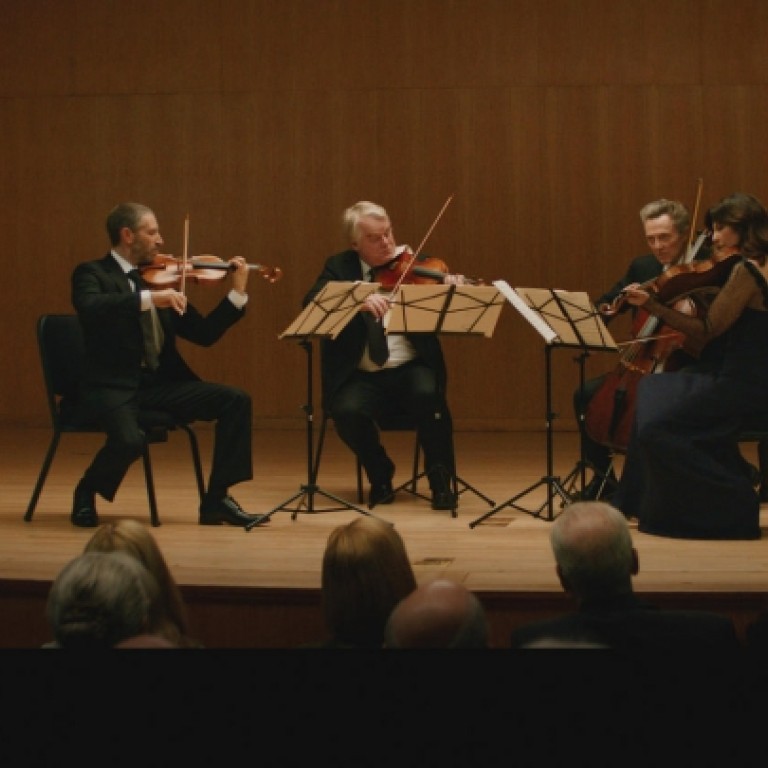
Film review: A Late Quartet
Yvonne Teh

Just like the similarly titled - Dustin Hoffman's directorial debut about four retired singers who gather to perform a work by Giuseppe Verdi - also revolves around classical musicians, but Yaron Zilberman's sophomore offering distinguishes itself by being more willing to explore dissonance and discordance. Consequently, this drama possesses more emotional heft than Hoffman's breezy effort.
Early on in , the three men and one woman who make up The Fugue quartet get together and talk about their upcoming concert season. The eldest of the four, cellist Peter (Christopher Walken), proposes that the ensemble perform Beethoven's , , to celebrate their 25th year playing together. One of six late quartets written by the composer, it's a technically challenging and physically demanding work in seven movements that needs to be played straight through - without any breaks or pauses - for more than 40 minutes.
Clearly, any ensemble attempting it would need to be at the top of its game. Yet while the internationally acclaimed New York-based quartet's members would usually believe they are up the task, their confidence and mental well-being are dealt a serious blow when Peter - already feeling his age upon being made a widower in the past year - is diagnosed with Parkinson's disease.
With the prospect of having to replace their beloved cellist and de facto mentor, first violinist Daniel (Mark Ivanir), second violinist Robert (Philip Seymour Hoffman) and violist Juliette (Catherine Keener) feel their own lives starting to unravel. Professional quarrels break out and it gets personal when egos come into play, with friendships and Robert and Juliette's marriage now under threat.
While it is clear that its director (who also co-wrote the screenplay with Seth Grossman, the latter under the pseudonym Christopher Ford) has a love and knowledge of classical music, it's the human side of its characters that is the real focus of .
The film depicts The Fugue as being like a family, for not only is Juliette the wife of Robert, she was also raised by Peter and his singer wife after being orphaned. And Juliette and Robert's daughter, Alexandra (Imogen Poots), is in a class taught by Peter and is tutored in music - and a bit more besides - by Daniel.
But while 's two primary females have significant roles to play in the drama's various concerns, their parts tend, disappointingly, to be more minor than major.
Instead, Daniel, The Fugue's perfectionist leader, and Robert, who makes clear that he doesn't want to always play second fiddle (in life and in the quartet), get more of the limelight. And while his part is less eye-catching, it is Walken who gives by far the most impressive performance of all - with the Brentano String Quartet, who played the heard in the film, also deserving a mention.
opens on June 20
